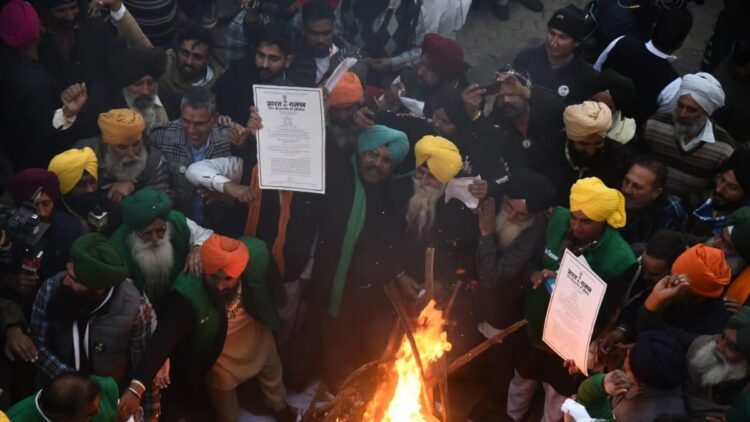Kannada director Kesari Haravoo said on Saturday that for the last two years, “our voice was being curtailed more and more with every passing day,” after the cancellation of his 2021 documentary on the farmers’ protest from this year’s Bangalore International Film Festival.

After failing to get approval from the Information and Broadcasting ministry, Haravoo’s documentary “Kisan Satyagraha,” which followed farmers’ protests against the previous three agricultural laws, was removed from this year’s Bangalore International Film Festival (BIFFES).
Karnataka Chief Minister Siddaramaiah opened the film festival’s fifteenth edition on February 29.
The dates of the film screenings are March 1–7.
Haravoo said that he was unaware of his film’s removal from the festival until the schedule was made public.
“My film is available in the BIFFES 2024 catalogue.” However, when examining the program, I was unable to locate it. Consequently, I contacted N Vidyashankar, the artistic director of the festival, who informed me that the film was abruptly withdrawn from the event due to lack of authorization from the Ministry of Information and Broadcasting. I believe that if we speak out against the system, our voice is being silenced more and more each day,” he said.
The I&B ministry did not provide them with a justification for the decision, according to festival director Thrilok Chandra K V.
“Every movie we are showing has to be submitted for permission. We sent the ministry two hundred films. Six films were initially denied clearance. We resent them, but authorization was rejected for two of the films (20 Days in Mariupol, Ukraine, and Haravoo). Since Haravoo’s movie was a documentary, it lacked certification, according to Chandra.
Haravoo, however, said that there is no legislation dictating that only approved movies need to be shown at national international film festivals.
“Documentaries usually are not certified, and many such films have opened at the international film festivals,” he said.
In response to Haravoo’s Facebook post regarding the ban, Ramachandra P N, a former head of the direction and screenplay department at Annapurna College of Film and Media in Hyderabad and another filmmaker from Karnataka’s Udupi, stated that the I&B ministry can only halt screenings when there is a disturbance of the public order.
“The Kerala Football Federation (FF) successfully contested two of the three uncertified films that were denied clearance in court a few years ago. The courts didn’t make that decision for six months after the film festival. The government’s justification for the refusal order, however, was deemed unlawful as the court ruled that the state had a responsibility to uphold law and order. The question is, “Will the Karnataka government file a lawsuit because its own right to free speech is in jeopardy? (sic),” he added.
The 10th International Documentary and Short Film Festival of Kerala (IDSFFK) prohibited the screening of three films in 2017: “In the Shade of Fallen Chinar,” “March, March, March,” and “Unbearable Being of Lightness.”
The festival’s organizer, the Kerala State Chalachitra Academy, filed a writ suit, which the Kerala High Court heard.
“March, March March” is about the protests at Jawaharlal Nehru University, “Unbearable Being of Lightness” is about the suicide of Dalit scholar Rohith Vemula in Hyderabad, and “In the shade of Fallen Chinar” is a short documentary that offers an insight into the lives of a group of young Kashmiri artists.
Of the three films, the court did not take a position on the one about Kashmiri students, Ramachandra told PTI.
“But the other two films were allowed to be screened,” he said.
Interestingly, Kerala State Chalachitra Academy filed a writ suit in 2019 at (IDSFFK) against the I&B ministry’s ban on Anand Patwardhan’s “Vivek/Reason,” claiming that the movie’s exhibition may disrupt law and order.
However, the Kerala High Court determined that the screening was allowed in accordance with the ministry’s standards and that the Center’s claim could not be supported.
According to Haravoo, a few years ago, a number of filmmakers, including Patwardhan, objected and eventually stopped submitting their films for prizes when the Central government introduced a law requiring them to be certified.
